If you’re a business owner, you know that the appearance and functionality of your property matter more than ever.
From attracting customers to maintaining a positive work environment, every detail counts.
One often overlooked element is your rooftop HVAC units. These essential systems can be bulky, noisy, and visually unappealing, which might detract from the overall aesthetic of your building. That’s where rooftop HVAC screening comes into play.
In this blog post, we’ll explore what rooftop HVAC screening involves, why it’s important, and how to choose the right option for your property.
What is rooftop HVAC screening?
HVAC screening refers to installing barriers or enclosures around HVAC units placed on the roof of a building. These screens, often made from materials like metal, wood, or composite materials, are designed to conceal the units from view, protect them from the elements, and ensure they blend in with the building’s architecture. They are a common feature in both residential and commercial settings, serving several essential purposes, such as improving aesthetics, reducing noise, and complying with building codes.
Why is rooftop HVAC screening important?
1. Improved Aesthetics
HVAC units are not the most attractive part of a building. They are often large, bulky, and can stick out. For business owners, this can be a problem since the visual appeal of your property can significantly impact customer perceptions. Screening your HVAC units helps to maintain a cleaner, more professional look, enhancing your brand image. A cohesive building design makes a better impression on clients, customers, and visitors alike, reflecting a well-maintained and thoughtful business environment.
2. Noise Reduction
HVAC units can be loud, particularly when they are running at full capacity. This noise can be disruptive, not just for your employees but also for your neighbors. Rooftop screens can act as barriers that absorb and reduce the sound that reaches nearby areas. This is a win-win situation for both residential and commercial properties, as they minimize disturbances and create a more comfortable environment for everyone.
3. Protection From Environmental Elements
Rooftop HVAC screens offer additional protection against harsh weather conditions like wind, rain, snow, and even harmful UV rays. Over time, exposure to these elements can cause wear and tear, leading to costly repairs or even replacements. A screen can help extend the lifespan of your HVAC system by shielding it from damage, which ultimately saves you money by reducing the frequency of repairs and prolonging the life of your equipment.
4. Compliance with Local Regulations
In many areas, building codes or zoning laws require rooftop HVAC units to be screened. This requirement is often aimed at maintaining a uniform appearance within a neighborhood or business district. Failing to comply with these regulations could result in fines or penalties, so ensuring your property meets all local codes is crucial. Rooftop screening is an easy and effective way to stay in compliance and avoid any legal troubles.
5. Increased Security
Unfortunately, HVAC units can be an easy target for thieves or vandals, especially in urban areas where rooftop access might be easier. By installing screens, you add an extra layer of security by concealing these units and reducing their visibility. This makes it harder for would-be thieves to access or damage them, thereby protecting your investment.
What are the types of HVAC screening?
When it comes to HVAC screening, you have several options, each with its benefits:
1. Louvered Panels
These are among the most popular choices. Designed with horizontal or vertical slats, they allow adequate airflow while providing enough coverage to obscure the units from view. Louvered panels are typically made from weather-resistant materials like metal or composite, ensuring durability and longevity.
2. Solid Wall Panels
For businesses where noise reduction is a top priority, solid wall panels might be the way to go. Made from materials like metal, wood, or composite, they offer complete concealment of the HVAC unit. However, ensure proper ventilation to prevent overheating.
3. Decorative Screens
If you’re looking to add some style to your property, decorative screens are a fantastic option. These come in various designs and patterns, allowing you to customize the look to match your building’s architecture. They are available in metal, wood, or composite materials.
4. Green Screens
Ideal for eco-conscious business owners, green screens incorporate plants or greenery into the screen design. While they offer a unique, natural appearance, they require a bit more maintenance. However, they can greatly enhance the aesthetic appeal and promote environmental sustainability.
5. Perforated Metal Panels
Made from metal sheets with holes punched throughout, these panels provide ventilation while still serving as a visual barrier. They are known for their durability and resistance to harsh weather, making them a solid, long-lasting choice.
How do you choose the right rooftop HVAC screen for your property?
Choosing the right screen involves considering several factors:
1. Aesthetic Preferences
Think about what will look best with your building’s design. A modern building might pair well with sleek metal panels, while a more traditional building could benefit from wood or decorative screens.
2. Budget
Prices can vary widely depending on the material, design, and installation requirements. Make sure to balance cost considerations with the benefits you aim to achieve.
3. Local Regulations
Be sure to check local building codes to determine any specific requirements for HVAC screening in your area. Compliance is key to avoiding fines or penalties.
4. Durability and Maintenance
Consider the climate in your area and choose materials that can withstand the local weather conditions. Also, think about the maintenance needs—metal panels might require less upkeep than wood or green screens.
5. Functionality Needs
If noise reduction or additional security is a priority, opt for screening options like solid wall panels or perforated metal panels that can meet those needs.
How do you go about the installation and maintenance of HVAC screening?
It’s best to have HVAC screening installed by professionals familiar with local building codes and experienced in such projects. Improper installation can compromise your HVAC system’s functionality, cause damage, or even violate regulations. After installation, regular maintenance is essential to ensure that the screen remains in good condition and serves its intended purpose. This includes inspecting for damage, clearing any debris, and checking for signs of wear and tear.
Frequently Asked Questions
Below are some commonly asked questions to consider:
1. Can rooftop HVAC screens affect the efficiency of the HVAC system?
Yes, if not designed properly, screens can restrict airflow, leading to reduced efficiency and potential overheating of the HVAC unit. It’s important to ensure that any screen installed allows adequate ventilation around the unit.
2. Do rooftop HVAC screens require regular maintenance?
Yes, while maintenance requirements vary based on the material used, most screens need periodic checks for damage, rust, or wear. Green screens, in particular, require regular watering, pruning, and plant care.
3. Can rooftop HVAC screens help with pest control?
Yes, some screens can deter birds, rodents, and other pests from nesting near or within the HVAC unit. Properly designed screens can be a barrier to pests, protecting the unit from damage.
Get rooftop HVAC screening today
HVAC screening is more than just a cosmetic upgrade; it’s a smart investment for your business. From improving aesthetics and reducing noise to ensuring compliance with local regulations and enhancing security, there are many reasons to consider installing rooftop screens. So take the time to explore your options and find the perfect screening solution that meets your needs and enhances your property’s value.
Speak to an HVAC contractor who offers light commercial HVAC services today!

